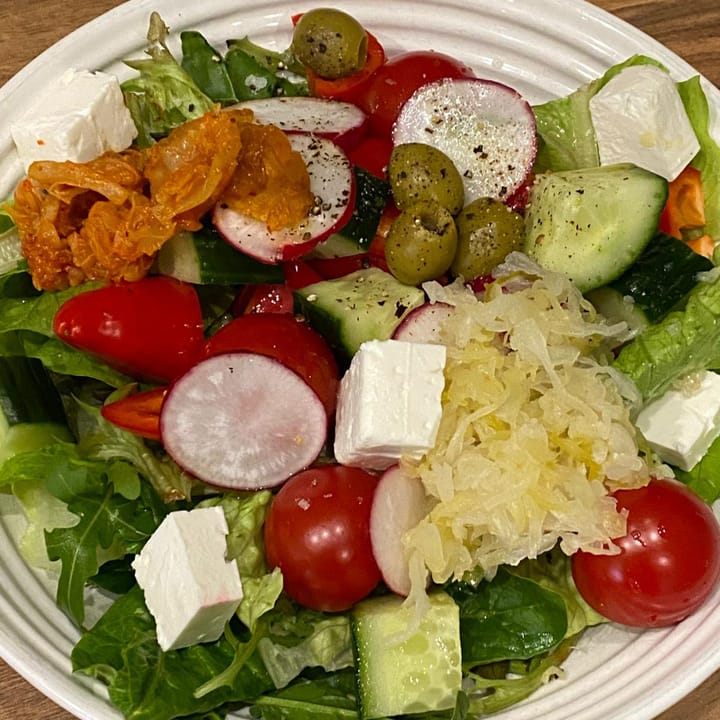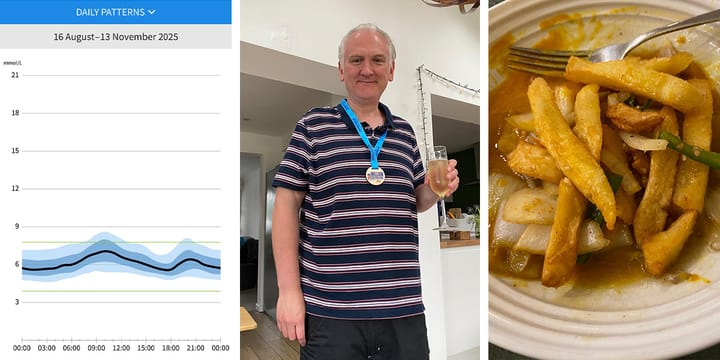Is nutritive mismatch the key to how ultra-processed foods cause metabolic syndrome?
In 2017, Dana Small and her team at Yale University published a study showing that when calories and sweetness are not matched, then the calories are not metabolised properley. This has enormous implications for artificial sweeteners and artificial flavourings.
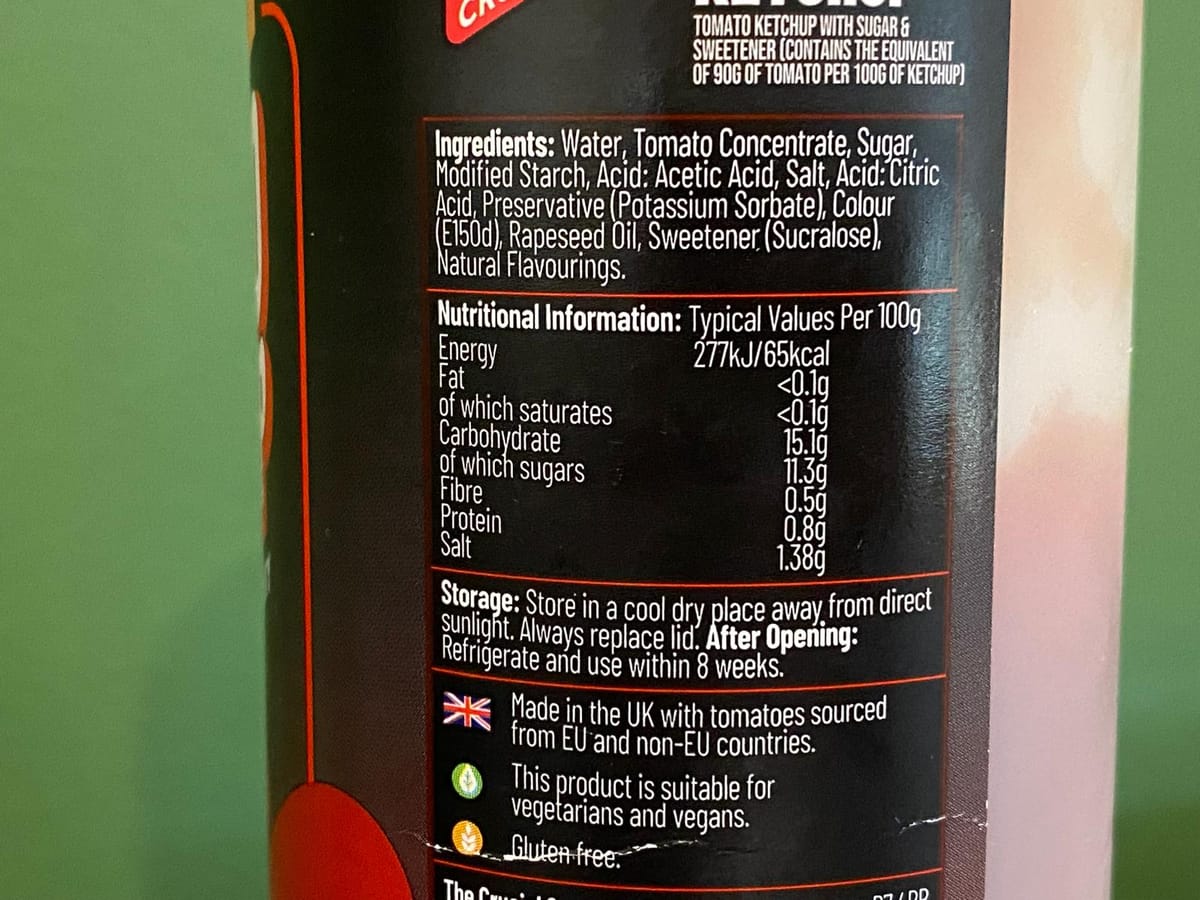
Another mind-blowing audiobook moment for me has been Chapter 6 of The End of Craving by Mark Schatzker (his previous book The Dorito Effect is also excellent). He details an experiment performed by Dana Small at Yale University where she tests the metabolic response to drinks that are sweetened with the non-calorific sweetener, sucralose. The key experiment he highlights is where five drinks all have the same sweetness but varying levels of calories from 0 to 150 (using generally tasteless maltodextrin to provide the calories). Dana used an indirect calorimeter machine to measure the amount of calories being burned in the 30 minutes after consumption of the drinks. The commonly accepted (and overly simplistic) view of calories being units of energy that the body simply burns or stores as fat would suggest that the highest calorie drink would provide the highest subsequent readings of increased calorie burning (measured as percentage change in Resting Energy Expenditure, REE). However, the results defied this logic and showed that the highest increase in calorie burning happened when the calories exactly matched the sweetness level of the drink. The highest calorie drink had 150 calories which was mismatched to the same 75-calorie equivalent level of sweetness and this produced no metabolic response i.e. it had the same amount of calorie-burning response as the drink with 0 calories.
"It blew my mind. I knew right away, we were onto something new and exciting... The entire metabolic process seemed to shut down." Dana Small
Nutritive mismatch
Dana coined the new term 'nutritive mismatch' and I hope it is going to become the new buzz-phrase for the social media diet influencers. It can be summarised as follows:
If calories and sweetness do not match, the calories will not be properly metabolised.
This has enormous implications for artificial sweeteners and flavourings, as well as ultra-processed food in general, because if the calories contained in a food are not being metabolised properly then they are getting stuck in the body in a way that is going to contribute to metabolic syndrome and its resulting illnesses. With this maltodextrin example, the excess calories are quickly broken down into glucose which circulates in the bloodstream. If these glucose molecules are not metabolised normally then this increases blood glucose levels and promotes excessive insulin production and lipogenesis. This is exactly what you don't want if you have type 2 diabetes, as consistently high levels of glucose and insulin increase fat storage and contribute to insulin resistance. Dana began a follow-up study to investigate the effects of nutritive mismatch on insulin sensitivity but the experiment had to be abandoned due to ethical concerns after two of three teenage subjects had already reached pre-diabetic levels of blood glucose in the early stages of the experiment. This effectively means that it's impossible to do a human randomised control study to prove the safety of mismatched drinks on insulin sensitivity because it clearly appears to cause dangerous levels of insulin resistance. We appear to have a weird system where proving danger is impossible and proving safety is somehow not required for food and drink manufacturers. That effectively makes us all guinea pigs in a rigged industry.
Post-ingestive learning
Our sense of taste gives us an immediate feedback on food quality. There's an evolutionary advantage to being able to immediately tell if food is edible or not, e.g. non-toxic berries are usually sweet and meat tends to develop a metallic or sulphurous flavour as it starts to become rancid. However, post-ingestive learning allows animals to adapt to different situations such as associating bitterness with nutritious food sources. This learning process involves a much more complicated system than the basic calorie counting mentality would have you believe.
“A calorie is not a calorie” Dana Small (and also Robert Lustig)
Nutritive mismatch demonstrates an apparent feedback system from the gut that keeps track of the calorific score sheet for what has just been consumed and passes this back to the brain before deciding on what to do with the calories. It's as though the system figures out that it's being duped and this indicates to the brain that the food is inadequate as a fuel or nutrient source. The result seems to be in keeping to the usual basal metabolic rate - the baseline rate at which the body uses energy to maintain normal living conditions - breathing, digesting food, thinking etc. There seems to be a set of bodily functions that the brain decides not to perform (or at least down-regulates) when there is a perceived nutritional deficit - either from being in a fasted state or having consumed 'inadequate' food. Likely candidates might be reproductive system maintenance, muscle hypertrophy, protein synthesis, substrate cycling, or even just the normal digestive process being bypassed. It could be that the brain is subconsciously deciding that "this food is junk so don't bother using it".
"What the brain ultimately cares about isn't how food tastes; it cares whether food is useful." Mark Schatzker
Implications
Dana Small's study looks at the nutritive mismatch effects of combining maltodextrin and sucralose. The resulting mismatch effect with other combinations of sugars and sweeteners will be either non-existent, the same, or even more increased. There is also the very reasonable assumption that the mismatch effect will also apply to other food macronutrients - proteins and fats. It could be that the unnatural combination of fat and carbohydrates often found in ultra-processed foods causes an even more pronounced mismatch effect.
"Whether this pathway exists in humans is unclear, and whether such metabolic neural afferent (MNA) pathways exist for other lipids and nutrients is being investigated" Dana Small on a similar feedback mechanism for fat metabolism in mice.
Food scientists crafted 'the bliss point' which is the perfect ratio of fat to carbohydrate causing higher consumption of artificial foods. A nutritive mismatch effect here could have a huge impact from things like UPF ready meals, sandwiches, baked treats, biscuits, condiments, confectionery and ice cream.
"Evidence is amassing that the nutritional content of processed foods is not accurately conveyed to the brain. This raises the possibility that how foods are prepared and processed, beyond their energy density or palatability, affects physiology in unanticipated ways that could promote overeating and metabolic dysfunction." Dana Small.
Government Policies/Sugar Tax
What is concerning is that it is now government policy in the UK to try to effectively abolish soft drinks that are sweetened only with sugar. This will encourage the production of soft drinks with artificial sweeteners being mixed with smaller amounts of sugar in order to reduce the sugar level to avoid it becoming a prohibited or more expensive product. As has already been happening for decades with policies demonising saturated fat, and even possibly the fortification of flour and cereals, well-intentioned government policies have the potential to have a huge detrimental impact on people's health. Ministers are never quick to investigate or own up to responsibility for when they get it wrong as happened with the Thalidomide scandal.
“There was no criminal trial in Britain and Enoch Powell (health minister between 1960 and 1963) flatly refused a public inquiry,”
The UK government is starting to crack down on marketing offers for 'less healthy food and drink' using the Nutrient Profiling Model (NPM). Now this is actually even more boring than it sounds and it clearly looks like it's been designed by accountants, with a penchant for spreadsheets, rather than nutritionists who understand the benefits of whole foods. The NPM scoring system is based on the notion that saturated fat, sugar and sodium (class A nutrients) are bad, and that protein, fibre, fruit, vegetables, and nuts (class C nutrients) are good. The NPM total is then given as class A - class C scores and if that number is above 4 for food, or above 1 for drinks, you're not allowed to advertise it to children. I'm in favour of banning the advertising of junk food, largely because it normalises the consumption of products that I don't think should be considered as food. However, this sterile definition of healthy vs unhealthy food shows that the people crafting this system are still looking at nutrition as an overly simplistic goal of consuming the right numbers of nutrients and calories. The human body does not operate like a furnace burning coal. It is a complex biological system of multi-directional signalling and intricate processes that have evolved over millions of years. Trying to simplify this into a basic macronutrient spreadsheet shows a complete lack of respect of how real food contributes to health. The motivation for food manufacturers with this crass scoring system is to simply replace sugar with artificial sweeteners (which will definitely increase the effects of nutrititve mismatch) and/or replace natural saturated fat with artificially created fibre and emulsifyers (which could possibly increase the effects of nutritive mismatch).
Mark Schatzker highlights the fact that a can of orange Fanta in New York contains 160 calories, whereas it contains 63 calories in the UK. A can in the UK is 330ml and contains 15g of sugar. It also contains Acesulfame K and sucralose to bump up the sweetness. The US version contains 44g of sugar for a 355ml can (the sugar is high fructose corn syrup, HFCS). That gives the UK version a sugar-to-volume ratio of 4.5% and the US version 12.4%. These are very rough estimates but assuming that they have similar sweetness levels and the US version is only getting the sweetness from the HFCS, that means that the nutritive mismatch is about 64% for the UK version. In Dana Small's experiments the drinks with just 25% mismatch resulted in a significant drop-off in calorie burning. Although 15g of sugar might sound a lot less harmful than 44g, the fact that the 15g is going to float around in your bloodstream for longer and not be used properly, could potentially be a lot more damaging to your health than 44g of sugar that gets used up in normal metabolic function. Now it could also be the case that HFCS is mismatched itself and has a similar effect, but we are at a point of not really knowing just how damaging these levels of mismatch are.
Politicians are not experts on human nutrition (not that I expect them to be) which is why they should be extremely cautious when tinkering with public food policy. They are always quick to rinse their hands of all responsibility once their short period in office is over and they're promoted to the public speaking gravy train. It's therefore not a good idea to blindly trust their policies. Wes Streeting's suggestion that we all cut an extra 50 calories per day from our food intake shows how hopelessly misinformed he is to be a Secretary of State for Health. If anyone in this role doesn't understand the role of nutritive mismatch then they shouldn't be in charge of health policies about food. If the government wants to reduce the amount of sugar we all consume then maybe they should simply stop giving taxpayers' money to farmers for growing sugar beet. Rather than the mind-boggling complexity of the NPM scoring system, it might have been better simply to ban advertising based on Carlos Monteiro's group 3 classification of ultra-processed food. It is difficult to legally define ultra-processed food but surely we can do better than NPM scores. A bit of common sense might lead the way but there's rarely much space for that in a courtroom. The worrying trend is that governments seem intent on telling us what we can and can't eat, and this will lead to people who eat takeaway pizza implementing policies to stop us having the freedom to eat beef, cheese and eggs.
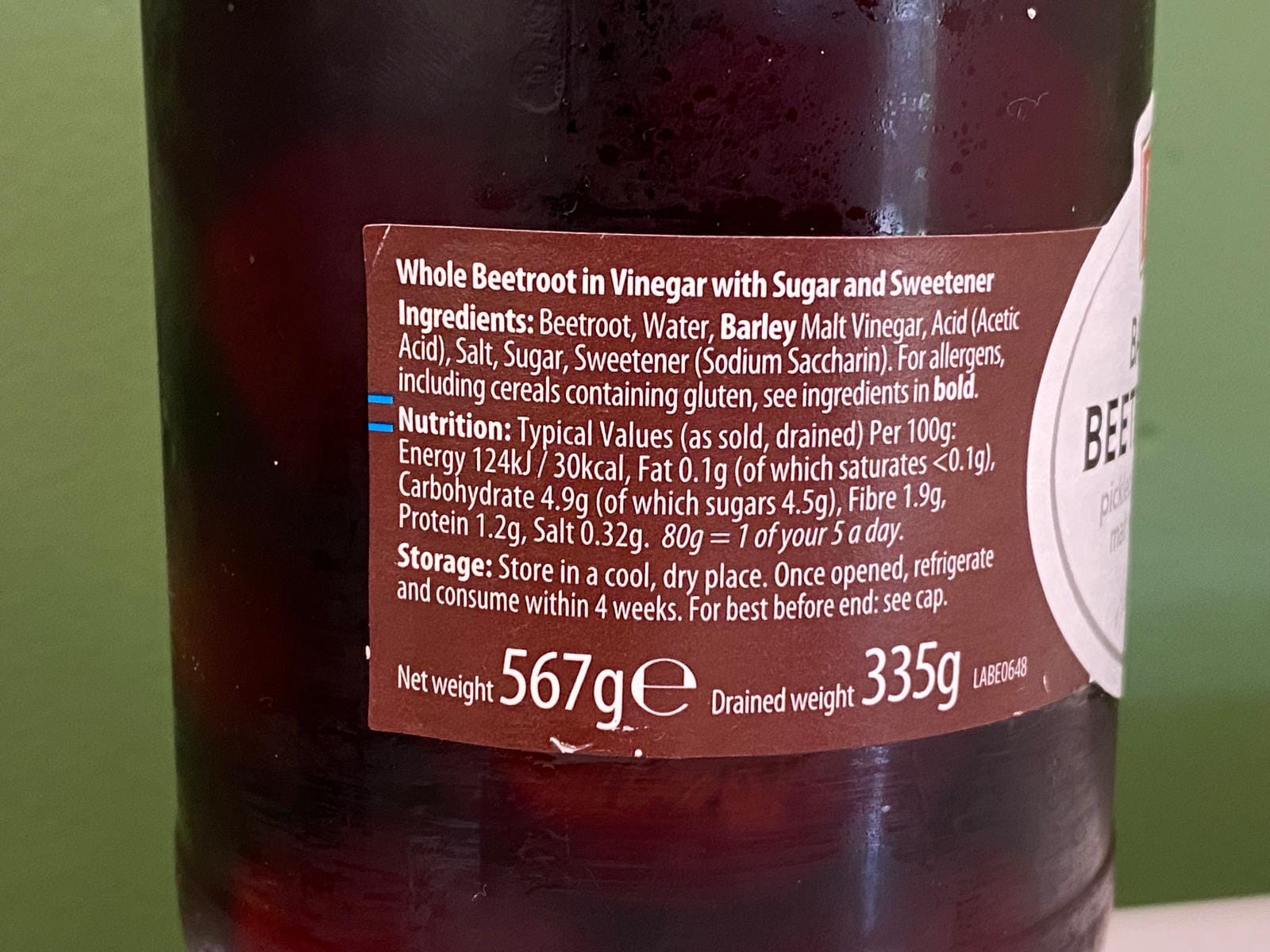
Practical takeaways
Nutritive mismatch is a nerdy way of saying, "your body can't process food that it doesn't understand". We've evolved over millions of years from very basic mammalian life forms that didn't possess any high-level conscious concept of gastronomic culture or experience. Not all mammals have the ability to talk about, let alone understand, how delicious a meal is, but we all do seem to share this basic taste-nutrient feedback mechanism. One thing I have learned about human metabolism is that it is massively complicated, and that is why artificially tinkering with the nutritional composition of natural foods we have been enjoying for the last 200-300,000 years is foolhardy at best. So if you're concerned about your metabolic health, what can you practically do about it?
- Avoid or reduce ultra-processed food (UPF) as much as possible.
- Tends to come in boxes
- Has compelling labelling or graphics on the packaging
- Has a long shelf life/doesn't go mouldy
- Contains more than 3-4 ingredients, and ones you wouldn't expect to find in your gran's kitchen
- Avoid artificial sweeteners, especially in drinks, and especially if mixed with any caloric sugars.
- Look out for hidden sugars on ingredients labels as combining multiple ones is a tactic used to mask the total sugar content and may also have an unexpected impact on glucose levels: anything that says 'syrup', glucose, fructose, sucrose, maltose, dextrose, maltodextrin, (some kind of messed about with) starch (thing), barley malt (or any kind of grain) extract, grain (something) solids, honey, agave, nectar, maple syrup, coconut sugar/nectar, fruit concentrate/purée, caramel, treacle, molasses, cane juice/solids, panela, rapadura, muscovado.
- Be wary of 0 calorie drinks because consuming the artificial sweeteners with anything else at the same time could contribute to nutritive mismatch as well as other potential health problems (definitely try to avoid having a diet drink with your burger and fries).
- Always check the ingredients and nutrition labels for packaged foods - manufacturers often start including new ingredients that boost their profit margins on products that you've checked previously.
- Prioritise managing your total daily food macronutrients from natural whole foods instead of counting calories - so that's protein, fat and net (or total) carbohydrates in grams. If you monitor this daily, you can adjust each over time to help improve your blood glucose levels (for those of us monitoring for diabetes).
- Note for our American pals - please stop using coffee creamer - no one else in the world calls it this and in the UK we refer to it as "powdered milk" and it is seen as inferior to the real thing. I suspect the French and Italians have the same opinion. Just add (preferably whole) milk or cream to coffee if you feel the need to do so. Adding normal table sugar or a single ingredient low-calorie sweetner is going to have less of a nutritive mismatch effect than a UPF creamer if you really have to sweeten it but be mindful of the effect on your blood glucose levels if you have diabetes.
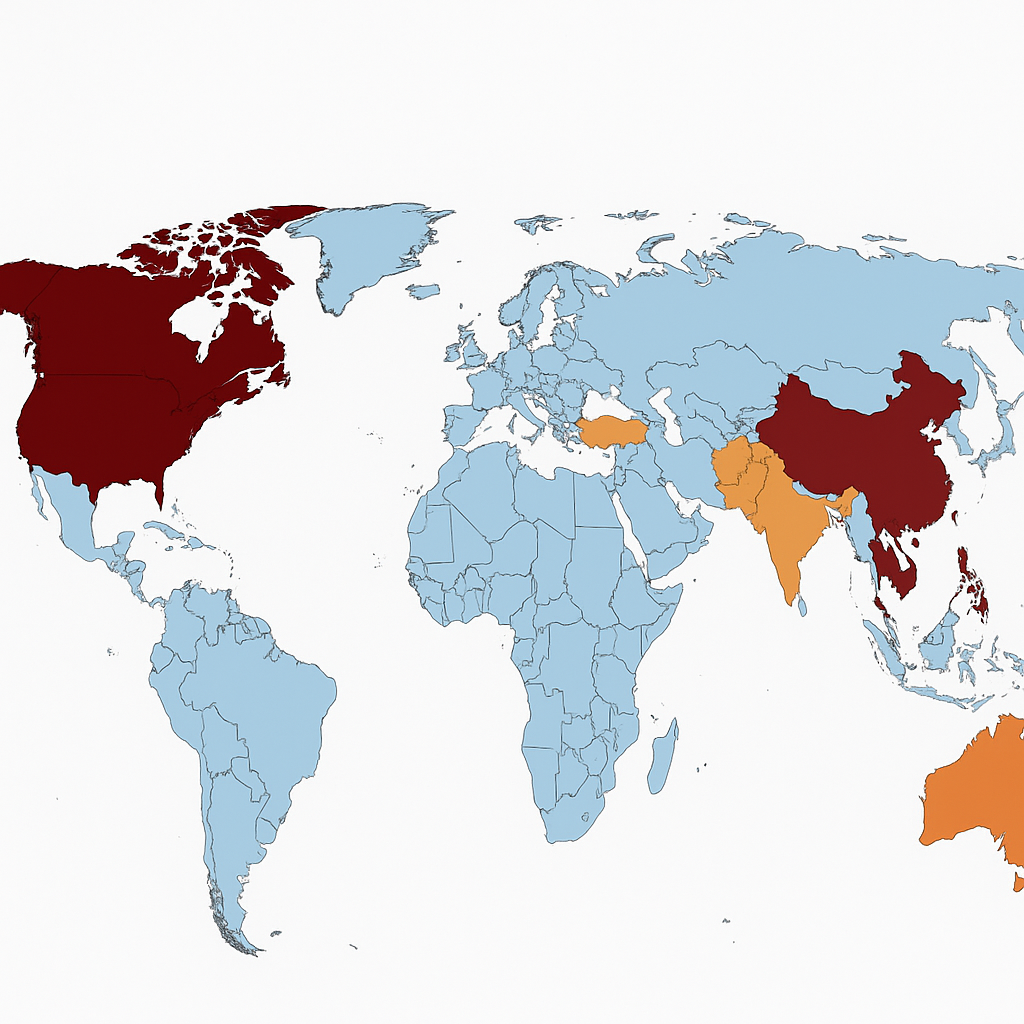
- Don't wait for governments, manufacturers, or scientists to prove that any food or drinks are either safe or harmful. A good way to investigate for yourself is to use a continuous glucose monitor (CGM) and then you can access the blood glucose impact.
- Ask for a full print out of results from any regular blood tests. Changes in these biomarkers can give you a long-term overview of the impact of any diet changes. Don't accept just high/normal/low as that doesn't give you enough information to correct anything that might be going wrong before you're diagnosed with a new condition.
- The best way to change the food industry is to make more informed choices at the checkout. If the market stops buying things like sodium metabisulphite, then suppliers will stop providing it. We need to fight this battle as individual consumers because maintaining our own health is a high level of personal priority for each of us. Politicians and manufacturers will always have other priorities ahead of what's best for us.
"Power prefers spin over truth." Michael Baigent
